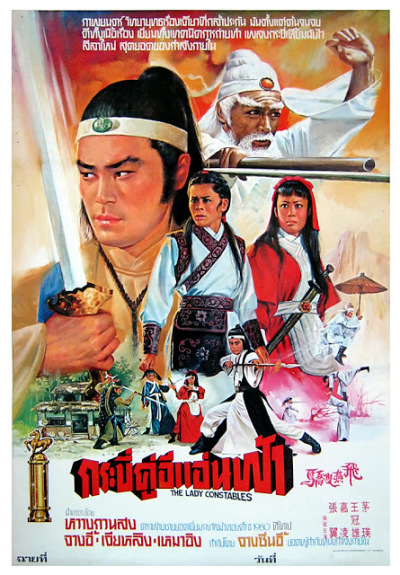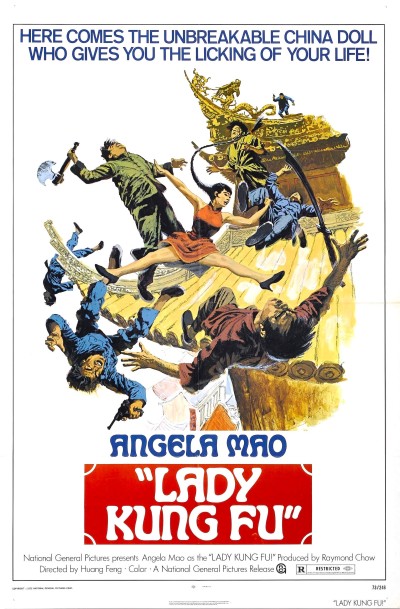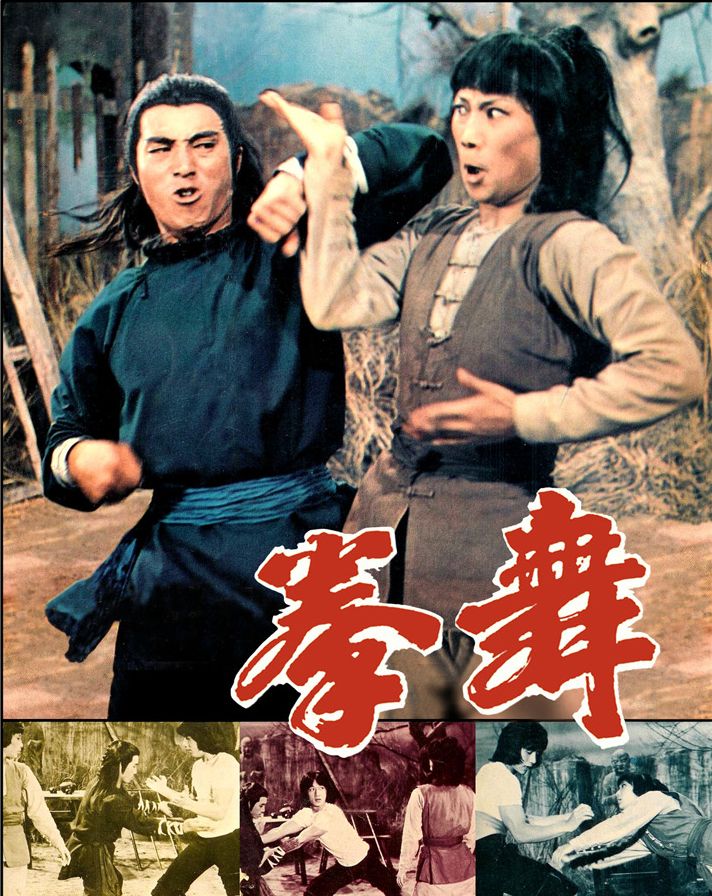★★★½
“Crazy people have to be good fighters.”
 I first encountered this in a dreadful copy on Youtube: dubbed, cropped to 4:3 and apparently filmed off someone’s TV during a Force 10 storm at sea. However, what was left after that, was still impressive enough to make me track down a better copy. Well, somewhat better: it had subs, albeit burned in and incomplete, while the 16:9 ratio was at least a vague approximation to the original widescreen print. Still, you take what you get, and this is certainly enough fun to overcome the adversity of any flaws in the format.
I first encountered this in a dreadful copy on Youtube: dubbed, cropped to 4:3 and apparently filmed off someone’s TV during a Force 10 storm at sea. However, what was left after that, was still impressive enough to make me track down a better copy. Well, somewhat better: it had subs, albeit burned in and incomplete, while the 16:9 ratio was at least a vague approximation to the original widescreen print. Still, you take what you get, and this is certainly enough fun to overcome the adversity of any flaws in the format.
The film starts with a robbery, in which five priceless pearls are snatched by the Black Wind Fortress gang under Coldstar Tiger (Chang). They split up to avoid detection, reckoning without the investigative – and, more importantly, interrogative – prowess of leading ladies Ti Yung Hing (Mao), who despite the title, is the only actual agent of law-enforcement here, and Tang Lin (Lee), whose uncle was killed during the robbery. Although they have similar goals, they refuse to team up, each preferring to work alone; adding an extra angle is Hung Yi (Wang), the bodyguard to the prince for whom the pearls were intended. Gradually, and not without some bickering on the way, they work their way up the Black Wind Fortress chain of command, and finally reach Coldstar Tiger. Though someone appears to be trying to cover the trail by offing their prisoners…
Yeah, as stories go, it’s pretty basic, and it’s clear the invention here was reserved for other aspects, such as the characters and the kung-fu. All three leads have their own quirks and foibles. One of the weapon’s in Ti’s arsenal is the ability to shoot scarves out of her sleeves, like a mad magician, and use them to encumber her opponent. Meanwhile, Tang keeps a plentiful supply of coffins on hand for her revenge, and isn’t a follower of the Geneva Convention on the treatment of prisoners, to put it mildly. And finally, Hung doesn’t speak – not because he’s mute, mind, he just doesn’t like to talk. He communicates instead with prewritten scrolls, which always have exactly the phrase he needs on them, and which he unfurls with a tinkly sound-effect.
The fight scenes are heavily wire-assisted, but that probably contributes to the action having stood the test of time better than many of its era (1978). They are no less imaginative than the characters, particularly at the end, with Mr. Tiger (Coldstar to his friends) wielding a mean umbrella/drone, on which one of our heroines hitches a ride. That previous sentence likely makes no sense if you haven’t seen the movie: if you do, then it will all become clear. Trust me on this, it provides a fitting climax to an entertaining piece of bare-bones action. With not one but two fighting ladies, this Taiwanese feature is deserving of a better presentation than it has received to date.
Dir: Cheung San Yee
Star: Angela Mao Ying, Judy Lee, Wang Kuan Hsiung, Chang Yi






